第91章
Conversationless at any time, he was now the victim of a weakness special to the occasion, and solely referable to Clennam. He was under a pressing and continual necessity of looking at that gentleman, which occasioned his eye-glass to get into his soup, into his wine-glass, into Mrs Meagles's plate, to hang down his back like a bell-rope, and be several times disgracefully restored to his bosom by one of the dingy men. Weakened in mind by his frequent losses of this instrument, and its determination not to stick in his eye, and more and more enfeebled in intellect every time he looked at the mysterious Clennam, he applied spoons to his eyes, forks, and other foreign matters connected with the furniture of the dinner-table. His discovery of these mistakes greatly increased his difficulties, but never released him from the necessity of looking at Clennam. And whenever Clennam spoke, this ill-starred young man was clearly seized with a dread that he was coming, by some artful device, round to that point of wanting to know, you know.
It may be questioned, therefore, whether any one but Mr Meagles had much enjoyment of the time. Mr Meagles, however, thoroughly enjoyed Young Barnacle. As a mere flask of the golden water in the tale became a full fountain when it was poured out, so Mr Meagles seemed to feel that this small spice of Barnacle imparted to his table the flavour of the whole family-tree. In its presence, his frank, fine, genuine qualities paled; he was not so easy, he was not so natural, he was striving after something that did not belong to him, he was not himself. What a strange peculiarity on the part of Mr Meagles, and where should we find another such case!
At last the wet Sunday wore itself out in a wet night; and Young Barnacle went home in a cab, feebly smoking; and the objectionable Gowan went away on foot, accompanied by the objectionable dog. Pet had taken the most amiable pains all day to be friendly with Clennam, but Clennam had been a little reserved since breakfast--that is to say, would have been, if he had loved her.
When he had gone to his own room, and had again thrown himself into the chair by the fire, Mr Doyce knocked at the door, candle in hand, to ask him how and at what hour he proposed returning on the morrow? After settling this question, he said a word to Mr Doyce about this Gowan--who would have run in his head a good deal, if he had been his rival.
'Those are not good prospects for a painter,' said Clennam.
'No,' returned Doyce.
Mr Doyce stood, chamber-candlestick in hand, the other hand in his pocket, looking hard at the flame of his candle, with a certain quiet perception in his face that they were going to say something more.
'I thought our good friend a little changed, and out of spirits, after he came this morning?' said Clennam.
'Yes,' returned Doyce.
'But not his daughter?' said Clennam.
'No,' said Doyce.
There was a pause on both sides. Mr Doyce, still looking at the flame of his candle, slowly resumed:
'The truth is, he has twice taken his daughter abroad in the hope of separating her from Mr Gowan. He rather thinks she is disposed to like him, and he has painful doubts (I quite agree with him, as I dare say you do) of the hopefulness of such a marriage.'
'There--' Clennam choked, and coughed, and stopped.
'Yes, you have taken cold,' said Daniel Doyce. But without looking at him.
'There is an engagement between them, of course?' said Clennam airily.
'No. As I am told, certainly not. It has been solicited on the gentleman's part, but none has been made. Since their recent return, our friend has yielded to a weekly visit, but that is the utmost. Minnie would not deceive her father and mother. You have travelled with them, and I believe you know what a bond there is among them, extending even beyond this present life. All that there is between Miss Minnie and Mr Gowan, I have no doubt we see.'
'Ah! We see enough!' cried Arthur.
Mr Doyce wished him Good Night in the tone of a man who had heard a mournful, not to say despairing, exclamation, and who sought to infuse some encouragement and hope into the mind of the person by whom it had been uttered. Such tone was probably a part of his oddity, as one of a crotchety band; for how could he have heard anything of that kind, without Clennam's hearing it too?
The rain fell heavily on the roof, and pattered on the ground, and dripped among the evergreens and the leafless branches of the trees. The rain fell heavily, drearily. It was a night of tears.
If Clennam had not decided against falling in love with Pet; if he had had the weakness to do it; if he had, little by little, persuaded himself to set all the earnestness of his nature, all the might of his hope, and all the wealth of his matured character, on that cast; if he had done this and found that all was lost; he would have been, that night, unutterably miserable. As it was-- As it was, the rain fell heavily, drearily.